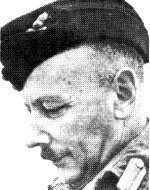Kisch, Fredrich
Son of Ellis and Herman Michael. He was born in 1888. He was educated in a British school, and at the age of 18 he was admitted to a military school in Wilitz. In the year 1904-1914 he served in the British Army in India and attained the rank of captain, when he broke out with the British force in August 1914. He fought on the Belgian front until December 1915. He was wounded in battles in France. When he was sent to the front in the Middle East, he was wounded again, and when he recovered, he was transferred to the War Ministry, where he remained in the post until the end of the war, where he was mentioned three times in official letters published by the British from the battlefields and was awarded various medals, including Britain’s Outstanding Service Award and the French Cross, (Major) and was later promoted to lieutenant colonel (Lieutenant Colonel) at the age of 30. After the war he participated in the British delegation to the Peace Conference in Paris where he became acquainted with the leaders of the Zionist movement, was influenced by them and began to work in the Zionist Organization. He married Ruth Franklin, a relative of Herbert Samuel, the first High Commissioner in Mandate Palestine. In 1922 he was unanimously elected to the Executive of the World Zionist Organization. In 1927 he relinquished his British citizenship and received Israeli citizenship. During this period he took an active part in social and economic life in Israel. He was a member of the managements of various factories, including a member of the Maccabi presidency. He was one of the founders of the Eliezer son of-Yehuda Memorial Foundation, whose goal is to publish the complete dictionary of the Hebrew language. The events of 1929 in Eretz Yisrael shocked the Zionist movement and caused the resignation of its president Dr. Chaim Weizmann. Kisch also resigned from the Zionist Executive at the 17th Zionist Congress in 1931. But even after resigning from his official positions in the Zionist movement, he continued to work in the management of various economic and cultural companies, including the treasurer of the Israel Philharmonic Orchestra when it was founded. He fought in World War II, liberating Jews from the camps. On 2 Nisan, April 7, 1943, he was killed by two landmines that exploded and killed him, and he was buried at a British military cemetery in Tunisia, near the place where he fell. Survived by a wife and two sons. In his obituary, Dr. Chaim Weizmann, who later became the first President of the State, stated: “His death in a mission in the fields of Tunisia in the service of Britain was in line with the principle of his life: faithful service to Britain and the Jewish cause.” Moshe Sharett, Wrote about him after his death: “Your firm heart was one with the redemption of Israel.” A kibbutz was founded in the Lower Galilee on the slopes of Ma’ale Hachamisha in the Jerusalem hills, in memory of Brigadier General Kisch. He was 54 when he died.
